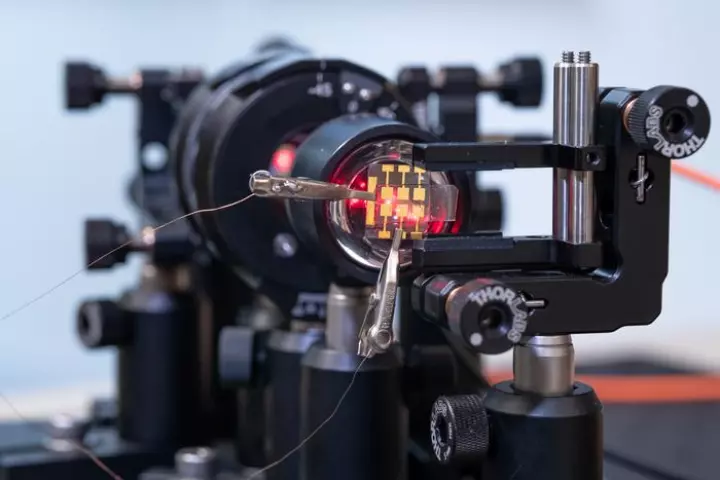Cryptography
-
Cybersecurity is a growing concern as more critical infrastructure can be exposed to hacks. Now Australian engineers have developed and demonstrated a new technique called “ineffable cryptography,” which treats keys like the Coca-Cola secret formula.
-
Quantum ComputingRandom numbers are critical to encryption algorithms, but they're nigh-on impossible for computers to generate. Now, Swedish researchers say they've created a new, super-secure quantum random number generator using cheap perovskite LEDs.
-
An academic from the University of Bristol in the UK has reportedly cracked the codex behind the so-called Voynich code. The language used in the 200-page manuscript has remained a mystery since it came to light more than a century ago.
-
Two computer scientists from the University of Alberta claim to have created a series of algorithms that can decipher unknown alphabetic scripts, and to test their system they have targeted the infamously impenetrable Voynich manuscript.
-
DNA security is a looming problem that scientists and researchers are only just starting to grapple with. A team at Stanford has now developed a way to "cloak" irrelevant genomic information, allowing scientists to access key data without revealing an individual's broader genome sequence.
-
Quantum ComputingChinese scientists claim to have launched the world's first quantum communications satellite with which they intend to experiment with quantum communication and teleportation from space, in the hope of one day producing an entire global network of quantum communication systems.
-
Researchers have found a way to speed up the rate at which data can be securely transmitted using quantum cryptography. It's a development that could pave the way to faster, ultra-secure communications that are impossible to spy on.
-
Researchers have managed to entangle three photons and add a 3-D corkscrew motion that effectively allows multiple recipients to simultaneously receive information securely encoded in the one transmission
-
A new device is set to make unbreakable, quantum-based cryptographic security available for everyone for the very first time. To do this, the device incorporates the quantum mechanics of random photon polarization to generate random numbers and create cryptographic keys.
-
Bitcoin is having serious teething problems. Most of these problems are associated with bitcoin storage or conversion, and should settle down as the currency is more widely accepted. Assuming this happens, let's look at the strengths and weaknesses of a mature Bitcoin currency in a modern economy.
-
TokyoFlash is a supplier of limited-edition LCD and LED watches that have joyfully substituted the conventional clock hands and dull numerals for exotic displays featuring counter-intuitive ideograms. Its new Kisai Spider Acetate watch has arguably set a new standard for inscrutability.
-
It's the world's most used web browser, but how many users are using extensions to get the most out of Google Chrome? Here are some of my favorites, not geared towards any particular profession, which I think could prove useful to my fellow generalist web users out there in the world.
Load More











